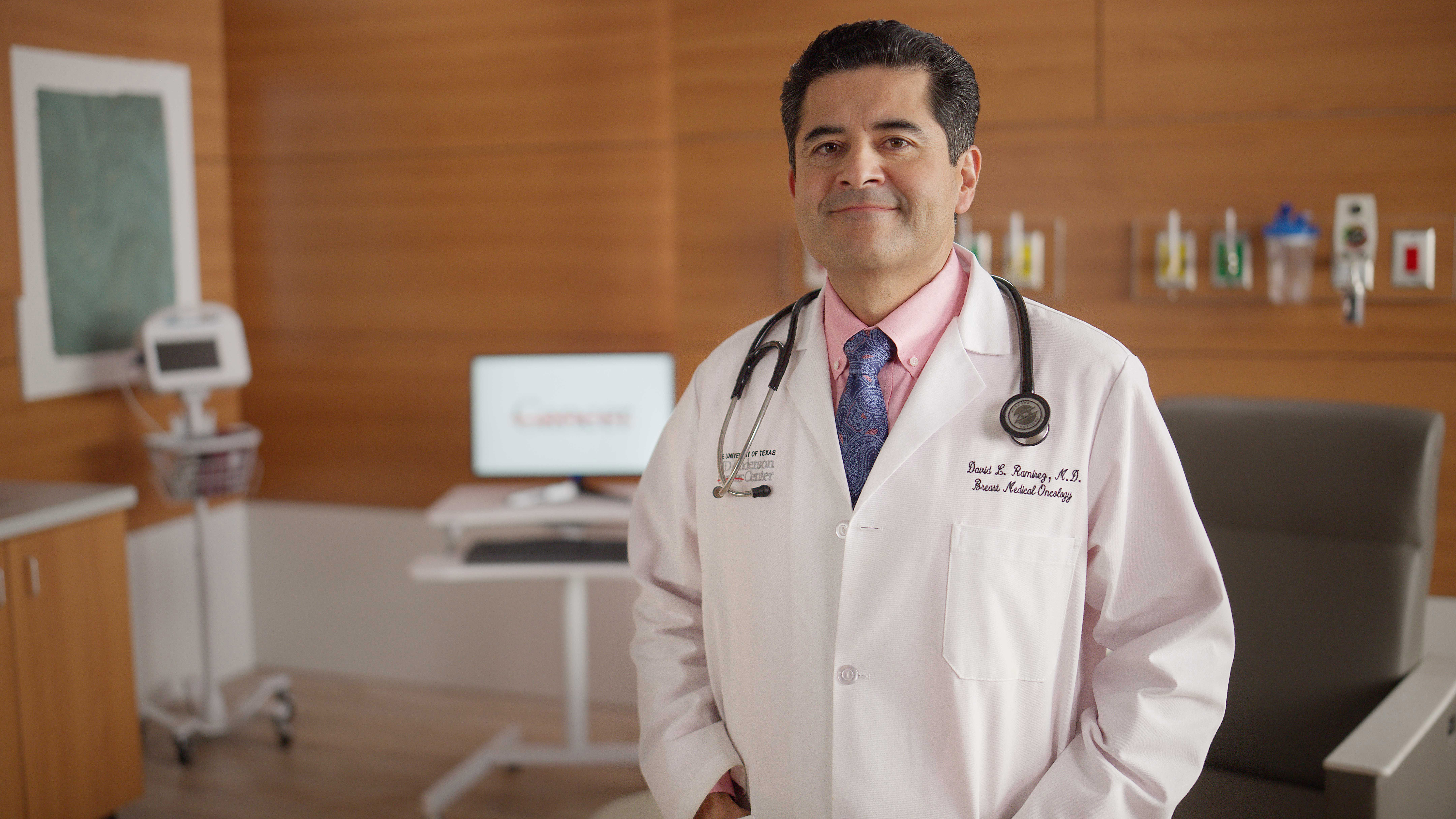- Diseases
- Acoustic Neuroma (16)
- Adrenal Gland Tumor (24)
- Anal Cancer (70)
- Anemia (2)
- Appendix Cancer (18)
- Bile Duct Cancer (26)
- Bladder Cancer (74)
- Brain Metastases (28)
- Brain Tumor (234)
- Breast Cancer (724)
- Breast Implant-Associated Anaplastic Large Cell Lymphoma (2)
- Cancer of Unknown Primary (4)
- Carcinoid Tumor (8)
- Cervical Cancer (164)
- Colon Cancer (168)
- Colorectal Cancer (118)
- Endocrine Tumor (4)
- Esophageal Cancer (44)
- Eye Cancer (36)
- Fallopian Tube Cancer (8)
- Germ Cell Tumor (4)
- Gestational Trophoblastic Disease (2)
- Head and Neck Cancer (14)
- Kidney Cancer (130)
- Leukemia (342)
- Liver Cancer (50)
- Lung Cancer (286)
- Lymphoma (278)
- Mesothelioma (14)
- Metastasis (30)
- Multiple Myeloma (100)
- Myelodysplastic Syndrome (60)
- Myeloproliferative Neoplasm (6)
- Neuroendocrine Tumors (16)
- Oral Cancer (102)
- Ovarian Cancer (176)
- Pancreatic Cancer (160)
- Parathyroid Disease (2)
- Penile Cancer (14)
- Pituitary Tumor (6)
- Prostate Cancer (150)
- Rectal Cancer (58)
- Renal Medullary Carcinoma (6)
- Salivary Gland Cancer (14)
- Sarcoma (238)
- Skin Cancer (300)
- Skull Base Tumors (56)
- Spinal Tumor (12)
- Stomach Cancer (66)
- Testicular Cancer (28)
- Throat Cancer (92)
- Thymoma (6)
- Thyroid Cancer (100)
- Tonsil Cancer (30)
- Uterine Cancer (86)
- Vaginal Cancer (18)
- Vulvar Cancer (22)
- Cancer Topic
- Adolescent and Young Adult Cancer Issues (22)
- Advance Care Planning (12)
- Biostatistics (2)
- Blood Donation (18)
- Bone Health (8)
- COVID-19 (360)
- Cancer Recurrence (120)
- Childhood Cancer Issues (120)
- Clinical Trials (628)
- Complementary Integrative Medicine (22)
- Cytogenetics (2)
- DNA Methylation (4)
- Diagnosis (238)
- Epigenetics (6)
- Fertility (62)
- Follow-up Guidelines (2)
- Health Disparities (14)
- Hereditary Cancer Syndromes (128)
- Immunology (18)
- Li-Fraumeni Syndrome (8)
- Mental Health (120)
- Molecular Diagnostics (8)
- Pain Management (62)
- Palliative Care (8)
- Pathology (10)
- Physical Therapy (18)
- Pregnancy (18)
- Prevention (936)
- Research (390)
- Second Opinion (78)
- Sexuality (16)
- Side Effects (616)
- Sleep Disorders (10)
- Stem Cell Transplantation Cellular Therapy (216)
- Support (408)
- Survivorship (328)
- Symptoms (182)
- Treatment (1788)
Genetic testing found a variant of uncertain significance. Now what?
5 minute read | Published September 29, 2021
Medically Reviewed | Last reviewed by an MD Anderson Cancer Center medical professional on September 29, 2021
When you agree to genetic testing, you expect a yes or no answer: yes, you have an abnormal change in a gene that increases your cancer risk, or no, you don’t. But sometimes, you might not get a clear “yes” or “no.” You might just get a “maybe.”
“That’s what you’ll hear if you have a variant of uncertain significance, or VUS for short,” says Sara Wofford, a genetic counselor at MD Anderson The Woodlands.
Unlike harmful mutations that cause cancer or benign ones that don’t, researchers don’t yet have enough information about variants of uncertain significance to know whether they’re involved in cancer.
“Genetic testing doesn’t deliver answers for everyone,” Wofford says.
Here’s what else she shares about these mystery mutations, which remain on a watch list until scientists can collect enough information to deem them harmful, or harmless.
Are genetic variants of uncertain significance common?
Almost 20% of genetic tests identify a VUS. These tests come in different “sizes.” Some examine only a handful of genes associated with cancer at a time, while others analyze up to 80 genes. The more genes you look at, the more variants of uncertain significance you’ll find.
How do genetic variants arise?
Our bodies contain 70 trillion cells. Every day, old cells die and give birth to new ones. Each time this happens, the new cells copy DNA from the old cells. With that many cells, there’s great potential for a genetic error to occur. This is how a genetic variant, or mutation, arises. We all have many variations in our genes, and the vast majority are harmless.
How are genetic variants classified?
The American College of Medical Genetics and Genomics categorizes genetic variants into five risk
levels, ranked from most to least severe.
- Pathogenic (harmful)
- Likely pathogenic
- Variant of uncertain significance
- Likely benign
- Benign (harmless)
Pathogenic variants are least common. You’re much more likely to have a VUS or a benign variant.
Are variants of uncertain significance ever reclassified?
A VUS may be reclassified as benign after research reveals that numerous people without cancer in the general population carry this variant, or computer models show that it has no significant impact on genetic functioning.
A VUS may also be reclassified as pathogenic, but this is rare. A recent study found that 91% of reclassified variants were downgraded to “benign,” while only 9% were upgraded to pathogenic.
Reclassifying a VUS can take months, years or decades. Some may never be reclassified if labs don’t have enough data to draw a definitive conclusion.
Has our knowledge about variants changed over time?
Researchers used to believe that all genetic variants were largely harmful. But about 20 years ago when the first sequences of the human genome were published, scientists realized that instead of being rarities that almost invariably harm health, variants occur frequently throughout the human genome. The average human carries around 400 unique variants, and most of us are none the worse because of them.
How will I know when my VUS has been reclassified?
When a VUS is reclassified, the laboratory that performed your test sends a revised report to your genetic counselor, explaining how and why the variant was reclassified. Your genetic counselor then contacts you to explain the updated results and what they mean for you and your family. For this reason, it’s very important for MD Anderson patients to keep their mailing address, email address and phone number up-to-date in MyChart.
If I have a variant of uncertain significance, should my family members be tested?
Because we don’t understand your variant, it generally would not be helpful for your family members to get tested. The tests wouldn’t clarify their cancer risks and therefore wouldn’t change the way their doctors are already managing their medical care. Instead, medical decisions should be based on their personal or family history of cancer.
That being said, there are times when multiple members in a family affected by cancer are tested to determine whether the same variant is present in those with cancer, or absent in those without. Your genetic counselor will notify you if testing other family members will help classify your variant.
How does my VUS change my medical treatment?
It doesn’t. Guidelines issued by the American College of Medical Genetics and Genomics specify that “a variant of uncertain significance should not be used in clinical decision making.”
Increased screenings or a surgery such as a preventive mastectomy could be unnecessary and potentially harmful to patients whose variants are later discovered to be benign. Wait-and-see is the standard consensus among medical experts.
In some cases, your genetic counselor may be able to tell you whether your variant is less concerning or more concerning than usual, based on your family history combined with the available information about your particular variant.
How do most people react to hearing they have a VUS?
Most patients find a VUS diagnosis to be more reassuring than concerning. They’re relieved to know no known pathogenic variants were detected. A few, however, find the ambiguous results unnerving. They have trouble coping with the uncertainty of a VUS.
Before patients undergo genetic testing, we counsel them about the risks and limitations of testing. If they’re particularly anxious, we may suggest they forgo testing altogether, or test fewer genes to lessen the chance of finding a VUS. We remind them that most variants of uncertain significance are harmless. But even with the right genetic counseling, uncertainty can be difficult.
How can scientists learn more about variants of uncertain significance?
To get a handle on a variant’s role in cancer, researchers must test millions of people, and share their data. If a VUS is found in a significant number of people who have cancer, but absent in those who don’t, there’s an increased likelihood that it could be associated with higher cancer risks.
But regardless of how extensive the databases get and how many people undergo genetic testing, uncertainty will never completely go away. Every time new cells replace old cells and copy their DNA, variants can arise.
Request an appointment at MD Anderson online or by calling 1-866-704-7141.
Related Cancerwise Stories

Genetic testing doesn’t deliver answers for everyone.
Sara Wofford
Genetic Counselor





